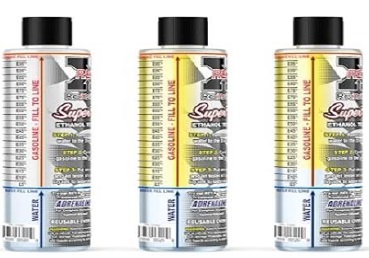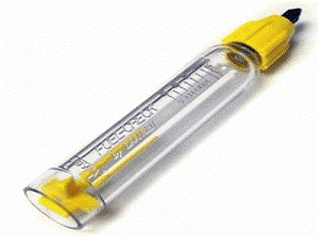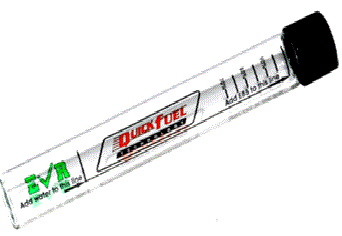by the Maintenance Airworthiness Working Group, part of the Transport Canada General Aviation Safety Program
Approval
Automotive gasoline, known as MOGAS, is a less expensive, readily available alternative to specific aviation fuel such as 100LL, and the limited or non-existent availability of 80/87 and 100/130 fuels. The use of MOGAS in your type-certified aircraft must be supported by a Supplemental Type Certificate (STC) authorizing its use in both the aircraft and the engine. If there is no STC available for your aircraft and engine configuration, the use of MOGAS is prohibited. There are several STCs available for purchase that cover a wide range of aircraft/engine combinations supporting the use of MOGAS.
However, most gasoline sold in Canada is required to be blended with alcohol (ethanol). Current ethanol percentages in automotive fuel range from 5% to 10%, depending on how much has been mandated by the province you are getting the fuel in. This poses a problem to MOGAS users, as the use of fuel blended with alcohol (ethanol) is prohibited.
The two primary sources of MOGAS STCs are the Experimental Aircraft Association (EAA) and Petersen Aviation. Both STC holders prohibit the use of automobile gasoline containing alcohol. The bottom line is, unless approved by an STC, the use of automotive gasoline containing alcohol is prohibited.
Transport Canada Publication TP 10737, Use of Automotive Fuel (MOGAS) In Aviation, also indicates the use of fuel containing alcohol, other than trace amounts used for fuel de-icing, is prohibited.
Failure to adhere to the instructions contained in a MOGAS STC could have a detrimental effect on the operation of the aircraft.
Owners of ultra-light and amateur-built aircraft should determine if using fuel containing alcohol can be used in their airframe and engine configuration. Owners of aircraft in the owner maintenance category are reminded the aircraft was a type-certified aircraft to begin with and should also determine if using fuel-containing alcohol can be used in their airframe and engine configuration.
Effects
The use of automotive fuel containing alcohol has created some issues. Materials that were considered ‘fuel resistant’ before alcohol was added to MOGAS may no longer be fuel resistant. Alcohol present in automobile gasoline may have the following negative effects when used in your aircraft:
Fuel testers bottles
Step 1: Add water to water fill line
Step 2: Add gasoline to gas fill line
Step 3: Shake well & let it sit for up to 5 min
Credit: Steve McLeod
- susceptible to vapour lock, more so at higher altitudes,
- hygroscopic, meaning it absorbs moisture more readily,
- corrosive and is not compatible with rubber seals and other materials used in the aircraft,
- problems with chemical compatibility with non-metallic parts such as composite fuel tanks,
- reduces the amount of energy content in fuel. Automotive gasoline with ethanol has less of the energy of automotive gasoline without ethanol,
- although alcohol in fuel increases the octane rating, as it absorbs moisture in the fuel, some may be drained off during a “sump check,” thereby decreasing the overall octane rating, and
- lower octane ratings in MOGAS could cause detonation and mechanical damage to the aircraft.
Fuel leaks and a wet appearance on fuel lines are evidence that the alcohol content in the fuel is not compatible with your aircrafts fuel system.
Testing
If you are unsure that the automotive gasoline available for use in your aircraft contains alcohol, there are testers available for purchase.
However, a simple test can also be performed without using a formal test apparatus.
- Using a non-tapered glass or chemical resistant plastic container, mark ten equally spaced volumes.
- Add one part water to the container (up to the first mark).
- Add nine parts automotive gasoline (fill to the top mark).
- Shake thoroughly and let stand for ten minutes, or at least until the fuel is clear and bright again.
If alcohol is present, it will absorb the water you added to the container. It will appear as though the water volume increased above the first mark. This is a clear indication there is alcohol in the gasoline. If the water level does not change, it is an indication there is no alcohol present. Your Gasohol Aircraft Fuel Tester can be used for this purpose.
Fuel testers
Credit: Steve McLeod
Fuel testers
Credit: Steve McLeod
Conclusion
Aircraft owners who use MOGAS must ensure the automotive fuel available to you does not contain alcohol, unless the approval to use MOGAS authorizes it (STC). In the case of ultra-light, amateur-built or owner-maintained aircraft, owners should also determine if using fuel containing alcohol can be used in their engine and airframe configuration. In all cases, if automotive fuel containing alcohol cannot be used, the aviation gasoline (Avgas) grade recommended by the aircraft and or engine manufacturer must be used.


